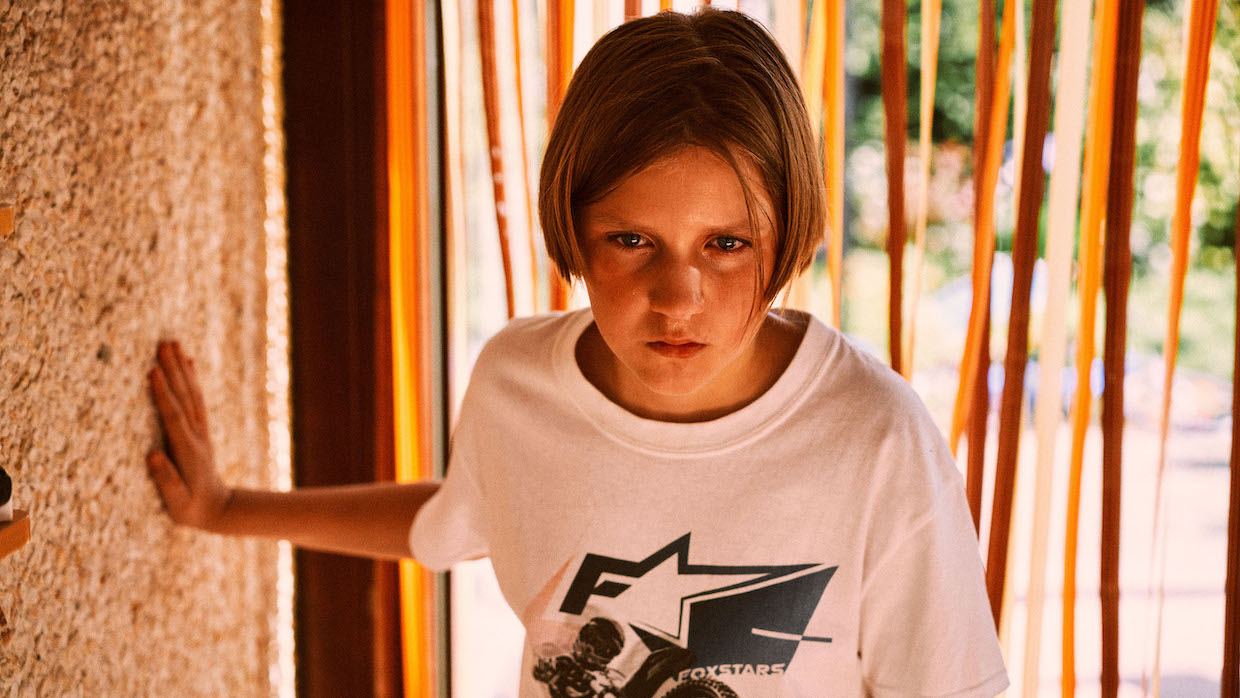 Back to selection
Back to selection
“Post-it Notes Always Are a Huge Help”: Editor Thomas Pooters on When It Melts
 When It Melts, courtesy of Sundance Institute.
When It Melts, courtesy of Sundance Institute. Actress Veerle Baetens’s feature debut When It Melts, adapted from Lize Spit’s novel The Melting, follows Eva (Charlotte De Bruyne) as she returns to her hometown for a funeral with an ice block packed in the back of her car. While she waits out this frigid winter (and as the ice block slowly shrinks), she recalls a scorching summer during her adolescence that forever altered the course of her life.
Editor Thomas Pooters shares his experience cutting Baetens’s film, a process that entailed many Post-it notes and enlightening conversations about gender.
See all responses to our annual Sundance editor interviews here.
Filmmaker: How and why did you wind up being the editor of your film? What were the factors and attributes that led to your being hired for this job
Pooters: Some good recommendations from people I’ve worked with in the past, together with an instant connection when first talking to Veerle.
Filmmaker: In terms of advancing your film from its earliest assembly to your final cut, what were goals as an editor? What elements of the film did you want to enhance, or preserve, or tease out or totally reshape?
Pooters: Watching a first assembly is always interesting to see how a movie script translates to the screen. It almost always doesn’t work, in my experience. Which doesn’t mean the script is bad. Written text and film are just two different mediums that work in a different way. So what works in writing, doesn’t necessarily work on screen. Knowing we also had to combine two time periods, it was sort of a given we would have to work a lot on the movie structure. How long should we stay in the present or the past? Why? How and when do we make the transitions? It was essential to find the correct build-up of all these different steps in the story.
Filmmaker: How did you achieve these goals? What types of editing techniques, or processes, or feedback screenings allowed this work to occur?
Pooters: Post-it notes always are a huge help. Which I hear are also used a lot by script writers to determine story structure. We also had a huge breakthrough when we realized every ‘block’ of present or past should have its own subject or theme in relation to Eva, the main character. What step is Eva taking in the story or what process is she going through? Narrowing things down for every block suddenly made everything very clear.
Filmmaker: As an editor, how did you come up in the business, and what influences have affected your work?
Pooters: Actually, I used to believe I wanted to become a director. It was only during the making of my first student films I realized that the only part of the process that made me feel happy was when I was editing. So that’s when I made the switch.
What has influenced my work the most is all the people I’ve worked with. Either by pushing my limits as an editor or by making me re-evaluate how I look at cinema. Also, I was lucky enough to be able to grow as an editor beside the best editor of Belgium, Nico Leunen (The Eight Mountains, Ad Astra, I Know This Much Is True, Beautiful Boy, Home, Lost River…). Easy to say, Nico has been the biggest influence in my work.
Filmmaker: What editing system did you use, and why?
Pooters: We used Avid Media Composer. Mainly because it’s the system that would best match the systems—and therefor was preferred by—of the other departments of post production.
Filmmaker: What was the most difficult scene to cut and why? And how did you do it?
Pooters: The scene in the bar where Eva goes for a drink with Joel, her colleague/boss from the photo studio. This scene changed countless times during the edit, and only got its final shape at the very end of the edit. Mainly because it was only then we could entirely grasp how this scene should look like. What lines we should use and which ones we shouldn’t. And what lines we didn’t yet have to make it work. It’s a scene that is pretty much totally rewritten and reconstructed in editing. We scanned through all the footage, looking for every bit we could maybe use in another way than it was conceived. And we used subtitles as place holders for lines that still needed to be recorded in ADR.
Filmmaker: Finally, now that the process is over, what new meanings has the film taken on for you? What did you discover in the footage that you might not have seen initially, and how does your final understanding of the film differ from the understanding that you began with?
Pooters: During the edit, most of our conversations about the film were probably about how Eva looks at things, what she feels and why. And the difference between young Eva and her older, present version. I believe one of my strengths as an editor is to be able to empathize a lot with the characters I edit. And therefor edit them in a way they are credible. But I’m also a man, and there have been a few moments that we were discussing Eva’s actions and we realized that Veerle and I were approaching a scene differently because of this. Because I am a man, and there are just certain things or situations I can’t relate to because they only happen to women. I was already aware of this before we started editing of course, but we encountered this a few times when I didn’t expect it. And because of this, the film got new meaning for me every time this happened. Needless to say we always followed Veerles instinct in these situations.
